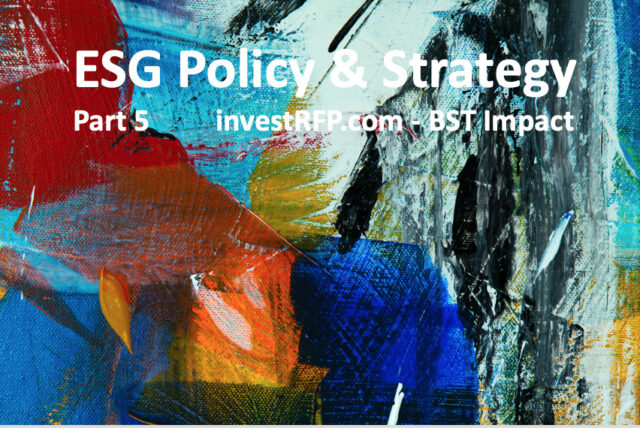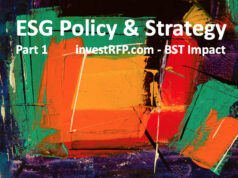By Kristina Touzenis, Managing Partner BST-Impact
| It is important to understand that many internal violations of rights found in international instruments are dealt with by national institutions; this is why it is so important to respect the due diligence if a violation has been committed and to have effective and fair legislation, law enforcement and an impartial and effective judiciary.
In these cases the State is dealing with violations as it is supposed to – taking action to prevent and address (and redress). In these cases the national system is functioning and thus direct international responsibility (as in “liability”) for a violation will not follow as it would if the State did nothing to prevent/address/redress violations, or actively participated in them.
| There is thus a responsibility to prevent/protect from wrong-doing and act if wrongs have been done, not an expectation that e.g. murder (taking of life) will never occur. It is a question of a responsibility to have in place legislation/regulation that is effective and is impartial and non-discriminatory and effectively implemented to create a society based on respect for fair rules.
If you have a norms based approach you can engage your investee and you engage the communities where your investee operate you will immediately gain transparency and you will be able to show your multi-stakeholder engagement and you will be able to set up short medium and long-term goals which will allow you to decide upon continued investment or not – but also to explain both to regulators as well as NGOs and journalists, why you are staying in that investment – not only because of the return that it will give you but because you realize that pulling out of complex investments, instead of engaging may well be the worst possible thing to do also from a sustainability perspective.
| Using norms to create your own meaningful indicators will make it so much easier for you to report towards a variety of regulations as well as obtain a variety of labels not only because you will show medium and long-term goals which are anchored in international standards, you will also linked this to internal governance and transparence.
In many cases what may seem “daunting” when reporting on sustainability is also to know when with credibility you can say “this is not applicable to me” with confidence – a norms based approach will guide you also when to say “nope – not relevant” and it will allow you to say to Regulators “I do not want to pull out of this investment because I see engagement” and it will allow you to say “we are looking into potential problems we do not yet have the answers but we are aware and these are the mechanisms we have to address the issues” – transparency on these issues are mostly rewarded.
There is also no doubt that if you start developing a robust sustainability strategy and a robust internal understanding of what sustainability is – supported by sustainability professionals – you will slowly decrease your risk of investing in companies who may lose license to operate, you will withstand consumer pressure as well as regulatory pressure, that will increase.
| These issues are not only important for the investee – it is something that will get to investor and asset manager level quickly.
Because if you invest in an entity which does not operate correctly from a sustainable perspective you will also be unable to report on your sustainability in accordance with e.g. the SFRD standards and you will be known as the firm who invested and supported an investee who does NOT want to work towards the SDGs.
| An entire new generation of asset owners are going to become incredibly rich over the next 5 to 10 years. An unprecedented amount of money is changing hands and the Generation Z and the millennials all focus on putting value and alignment of values as primary focus for their investments.
An incredibly useful aspect to using
international norms is that they were negotiated – sometimes for YEARS – between States, so they are not utopian!
They are actually very practical, and can truly be used by you to be READY for any regulation coming out regarding sustainability issues, specifically governance and societal issues which right now are often seen as “complicated” and not only “complex”.
This article is the Part 5 of a series on “ESG Policy & Strategy”
Part 1: Why asset owners need a good sustainable investment policy and strategy?
Part 2: SFDR aims at preventing greenwashing and ensuring data comparability
Part 3: Working towards the SDGs – at 360 degrees
Part 4: Due Diligence, Supervision and Enforcement Mechanisms
Part 5: Bringing down to “Earth”
Part 7: ESG as a real sustainability tool
Part 8: Awareness and attention towards rights and starndards
Part 10: ESG Policy & Strategy – Key Questions
Expert/Specialist Feedback on investRFP | Kristina Touzenis | BST-Impact
| about
Kristina Touzenis is the Managing Partner of BST Impact. A lawyer and a recognized leader in the effective and concrete operationalization of international human rights standards and principles in complex settings worldwide requiring long-term engagement with a multitude of stakeholders, form both the public and private sectors. She has more than 20 years of experience in advocacy, human rights reporting, monitoring, and evaluating as well as in policy making and negotiating at national, regional, and global level. Kristina founded BST Impact with two other partners in mid 2020, together with a pool of experts to help companies and investors to effectively operationalize ESG criteria, SDGs, international norms and the Business and Human Rights agenda into their respective sustainable business strategies, investment processes and risk assessment management systems. Previously, Kristina created the International Law Unit at the International Organization for Migration – IOM, the UN Agency for Migration and served as Head of the Unit from 2011 to 2020. She engaged with government counterparties on legislation development and review as well as with other Agencies within the UN common system, on advocacy and implementation of programmes worldwide. Prior to her appointment at the IOM HQ, Kristina worked from 2006 to 2011 in the IOM Regional Office for the Mediterranean Region, on translating international norms and standards into practice on the ground and from 2002 to 2006 on implementing children’s rights in the Mediterranean Region for an NGO.
| All opinions expressed are those of the author. investESG.eu is an independent and neutral platform dedicated to generating debate around ESG investing topics.









